Differences between Broiling and Grilling | Broiling Turkey | Broiling and Grilling Tips
Differences between Broiling and Grilling
| Broiling is a cooking method in which food is cooked with a high heat source. It is similar to grilling except that broiled food is cooked below a heat source and grilled food is cooked above a heat source. Generally, broiling is performed in a kitchen oven unit while grilling is most often done on equipment used outdoors. (As described in "Grilling Turkey", there are also indoor portable electric models for the countertop and kitchen stoves with built-in grills). Turkey pieces, such as breasts and full legs, may be broiled, but more often, the pieces are cut into smaller, flatter portions to ensure that they will cook quickly and evenly. For example, turkey breasts may be sliced into cutlets and broiled, but an entire breast is not a good candidate for broiling because the outer portions may become overdone before the interior has been cooked to the proper internal temperature of 170°F.
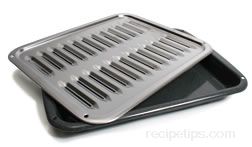
Another difference between broiling and grilling is that when food is grilled, it is generally placed directly on the grilling rack, and when food is broiled, it is most often placed on a broiling pan rather than directly on the oven rack. The broiling pan catches melting fat and juices that drip from the turkey as it cooks. This is not as critical when using an outdoor grill.
|
Broiling Turkey
|
The distance the turkey is placed from the heat source is important for proper broiling. Turkey parts or turkey cutlets should be placed 3 to 6 inches below the heat source, depending on the thickness of the cut. Thin cuts of turkey should be closer to the heat source than thicker cuts. Thicker cuts require more time to cook to the correct doneness than thin cuts, so placing them farther from the heat source allows the meat to cook thoroughly without burning the surface. The skin may be left on or removed, but leaving the skin on helps to keep the meat moist and tender during the broiling process. The skin can be removed before serving the turkey.
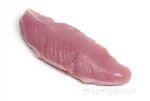 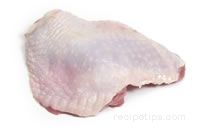
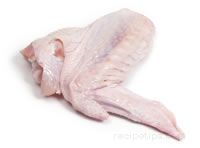 
Cuts of Turkey that are Good Choices for Broiling
Oven racks should be adjusted to allow for the height of the broiler pan and the thickness of the turkey. After preheating the broiler pan, the turkey is placed on it and the broiler pan is positioned under the broiler. Unlike some cooking processes, such as roasting or braising, the meat should be watched throughout the broiling process to ensure that it does not burn. When one side of the meat is cooked, it should be turned to the other side using a tongs. Do not use a fork to turn the meat. Piercing the meat with the tongs of the fork will allow juices to escape, which toughens the meat.
|
Broiling and Grilling Tips
|
The Following Tips should be Considered when Broiling or Grilling Turkey
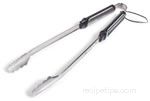
- When grilling or broiling turkey pieces, use tongs to turn the pieces rather than piercing them with the fork. Piercing the meat allows juices to escape, which can toughen the meat.
- Make sure the heat is not so high that the turkey becomes charred on the outside before the interior is cooked to the appropriate doneness.
- Turkey has a tendency to become dry when it is grilled or broiled so it must be watched carefully during the cooking process. The turkey can be coated with oil or it can be marinated to help prevent it from drying out while cooking.
- It is important that the turkey is grilled or broiled at the correct temperature and that the turkey is at the proper distance from the heat source to ensure that the meat will be tender and juicy.
- Always have a fire extinguisher handy when using an outdoor grill and make sure the grill is at least 10 feet from buildings or any other flammable items.
- In order to preserve the natural moistness, leave the skin on the turkey while it is being grilled or broiled. It can be removed prior to serving.
- In order to cook different sized turkey pieces at a similar rate, place the smaller pieces further from the heat source so that they will cook at a slower rate.
- Aromatic woods including alder, hickory, or maple, can be added to the coals during the grilling process to provide a distinctive flavor to the turkey; however, this technique will not add as much smoked flavor as barbecuing, which uses indirect heat, smoke, and a lengthier cooking time to achieve a more pronounced smoked flavor.
- In order to speed the broiling or grilling time, turkey pieces may be microwaved first to partially cook the pieces; however, the partially cooked turkey must be grilled or broiled immediately after microwaving to maintain the wholesomeness of the food. If the cooking is finished at a later time, harmful bacteria will grow rapidly in the partially cooked turkey, which may cause food poisoning.
| |






